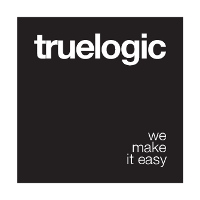Global Event Bus
Events are important for the inner workings of your App.
Sometimes you need an event bus or a publish/subscribe channel. Quasar provides this out of the box:// outside of a Vue component:
import { Events } from 'quasar'
Events.$on('app:visibility', state => {
console.log('App became', state)
})
// inside a Vue component:
this.$q.events.$on('app:visibility', state => {
console.log('App became', state)
})
// in this case, make sure you unregister your handler
// when the Vue component gets destroyed
Full example inside a Vue component:// on a Vue component:
export default {
...,
created () {
this.handler = state => {
console.log('App became', state)
}
this.$q.events.$on('app:visibility', this.handler)
},
beforeDestroy () {
this.$q.events.$off('app:visibility', this.handler)
}
}
Essentially, Events is just a Vue event bus that you can use throughout your App. If you know how to use Vue events, then you’re all set to go.
IMPORTANT!
Not to be confused with events supported by Quasar Components. Those are Vue events emitted by the respective components and don’t interfere with this global event bus.
Methods
Registering for an Event
Events.$on(String eventName, Function callback)
Example:import { Events } from 'quasar'
Events.$on('some-event', (param1, param2) => {
//...
})
Removing Callback for an Event
Events.$off(String eventName [, Function callback])import { Events } from 'quasar'
// Unregistering an event:
Events.$off('event-name')
// 'event-name' does no longer has any callbacks
// Unregistering a specific callback for an event:
let callback = function(...) {...}
Events.$on('event-name', callback)
Events.$off('event-name', callback)
// 'event-name' still exists (if other callbacks are registered to this event),
// but does not contain the above callback anymore
Registering a Callback to Be Run Only Once
Events.$once(String eventName, Function callback)
Sometimes you need to trigger a callback only once. Example:import { Events } from 'quasar'
let callback = function(...) {...}
Events.$once('event-name', callback)
// callback will be triggered only once
Triggering an Event
Events.$emit(String eventName [, Anything *arg])
Example:import { Events } from 'quasar'
Events.$emit('event-name')
// All callbacks associated with 'event-name' will be triggered
// in the order that they were registered.
// Trigger with parameters (as many as you want):
Events.$emit('event-name', {
status: 10,
message: 'wow',
obj: true
})
// The parameters will be used when calling all registered
// callbacks for 'event-name' --> callback({status: 10, message: 'wow',...});
Quasar Events List
There are some events emitted by Quasar already that you can hook into.
Global Events
| Event Name | Description |
|---|---|
| app:error | Triggered for any Javascript error. See parameters below. |
Parameter supplied by app:error
app:error event is triggerd with one parameter, an Object containing the following properties:
| Property Name | Type | Description |
|---|---|---|
| message | String | Error message |
| source | String | URL of the script where the error was raised |
| lineno | Number | Line number where error was raised |
| colno | Number | Column number for the line where the error occurred |
| error | Object | Error Object containing amongst other things the stack trace |
App Visibility
| Event Name | Parameters | Description |
|---|---|---|
| app:visibility | (String) state | App got focus if state is visible or lost focus if state is hidden |
Read more about it here.
Toast
| Event Name | Parameters | Description |
|---|---|---|
| app:notify | (String) html | Is triggered whenever a Toast is displayed. |
Read more about it here.
Loading
| Event Name | Parameters | Description |
|---|---|---|
| app:loading | (Boolean) status | Triggered when Loading component is displayed (with true as param) or hidden (with false as param). |
Read more about it here.
 Quasar
Quasar 